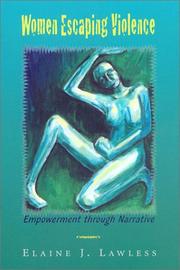| Listing 1 - 10 of 346 | << page >> |
Sort by
|

ISBN: 0826213197 0826262678 9780826262677 1417528052 9781417528059 0826213146 9780826213143 9780826213198 0826213146 9780826213143 Year: 2001 Publisher: Columbia University of Missouri Press
Abstract | Keywords | Export | Availability | Bookmark
 Loading...
Loading...Choose an application
- Reference Manager
- EndNote
- RefWorks (Direct export to RefWorks)
Book
ISBN: 2721009257 Year: 2021 Publisher: Paris : Passés Composés,
Abstract | Keywords | Export | Availability | Bookmark
 Loading...
Loading...Choose an application
- Reference Manager
- EndNote
- RefWorks (Direct export to RefWorks)
République démocratique du Congo (alors appelée Zaïre), 1996. Une guerre éclate dans les hauts plateaux de l'Est du pays, voisin du Rwanda. La population bascule brutalement dans l'horreur, un cauchemar incessant, fait de conflits armés successifs depuis près de trois décennies. Les habitants, dans leurs villages et sur les routes, subissent frontalement le choc des violences de toutes sortes perpétrées par des rebelles, insurgés de l'armée, militaires, policiers, voleurs..., hommes ivres du pouvoir et de la puissance que leur donnent les armes. Parmi les exactions : les viols et mutilations sexuelles, au pouvoir de destruction ravageur, aggravé pour de nombreuses victimes par une obligation au silence. Mais Tatiana Mukanire parle, en son propre nom et au nom d'autres femmes victimes. "Nous avons en nous cette envie de vivre. Nous l'avons prouvé en nous battant pour notre survie, en nous accrochant à la vie. Nous avons été esclaves sexuelles, nous avons été enterrées vivantes quand nous ne pouvions plus satisfaire les besoins de nos ravisseurs. Nous avons été ligotées à un arbre au fond de la forêt. Nous avons été violées presque chaque heure. Nous avons perdu connaissance. Plusieurs fois, nous nous sommes crues mortes, mais au fond de nous subsistait l'espoir de respirer à nouveau et de revivre."."--Page 4 of cover.
Book
ISBN: 0415622174 9780415622172 Year: 2014 Publisher: Abingdon: Routledge,
Abstract | Keywords | Export | Availability | Bookmark
 Loading...
Loading...Choose an application
- Reference Manager
- EndNote
- RefWorks (Direct export to RefWorks)
"Adopting an explicitly feminist perspective, the book argues that law must be looked at holistically, and will investigate how the legal responses presuppose, maintain and perpetuate a certain context that may in fact not reflect women's experiences. Examples of law reform in the area of violence against women and its implementation will illustrate both the overt and the 'hidden gender' of so-called neutral or objective legal principles and structures. Drawing upon a range of material primarily from Australia and England/Wales but also from the US, Canada and European countries, the book highlights the indeterminacy of the legislation and how that translates into decision-making. Consequently, Carline and Easteal analyse the application and efficacy of the law. Through contextualizing and critiquing relevant legislation, case law, and studies into the legal system, as well as comparing violence against women and policy responses, Shades of Grey will assist law-makers, academics, policy-makers and a wider audience in understanding the complexities of violence against women and the potential and the limits of law. The book does even more though; both explicitly and implicitly it provides suggestions for best practice models for policy-making and law reform. It is intended that the book will help to improve the government, community and legal responses to women who experience violence. Contextual and comparative information is an invaluable source of the knowledge and ideas needed to deal more effectively with this global public health and human rights issue"--
Women --- Abused women --- Women --- Abused women --- Women --- Abused women
Book
Abstract | Keywords | Export | Availability | Bookmark
 Loading...
Loading...Choose an application
- Reference Manager
- EndNote
- RefWorks (Direct export to RefWorks)
Abused women --- Abused women --- Services for

ISBN: 0761919953 Year: 2000 Publisher: Thousand Oaks (Calif.) : Sage,
Abstract | Keywords | Export | Availability | Bookmark
 Loading...
Loading...Choose an application
- Reference Manager
- EndNote
- RefWorks (Direct export to RefWorks)
Book
ISBN: 9789966213211 996621321X Year: 1997 Publisher: Nairobi, Kenya: Paulines publications Africa,
Abstract | Keywords | Export | Availability | Bookmark
 Loading...
Loading...Choose an application
- Reference Manager
- EndNote
- RefWorks (Direct export to RefWorks)
Women --- Abused women

ISBN: 0761919945 1322413126 1452221723 Year: 2000 Publisher: Thousand Oaks, Calif. ; London : SAGE,
Abstract | Keywords | Export | Availability | Bookmark
 Loading...
Loading...Choose an application
- Reference Manager
- EndNote
- RefWorks (Direct export to RefWorks)
Drawing on extensive research, this text provides a comprehensive examination of why women stay in abusive relationships and why they leave, explaining why women should not be blamed for their victimisation.
Book
ISBN: 8439369972 Year: 2005 Publisher: Barcelona Institut Catala de les Dones
Abstract | Keywords | Export | Availability | Bookmark
 Loading...
Loading...Choose an application
- Reference Manager
- EndNote
- RefWorks (Direct export to RefWorks)
Sex role --- Abused women
Book
ISBN: 8439369034 Year: 2005 Publisher: Barcelona Institut Catala de les Dones
Abstract | Keywords | Export | Availability | Bookmark
 Loading...
Loading...Choose an application
- Reference Manager
- EndNote
- RefWorks (Direct export to RefWorks)
Sex role --- Abused women
Periodical
Year: 2005 Publisher: Barcelona Institut Catala de les Dones
Abstract | Keywords | Export | Availability | Bookmark
 Loading...
Loading...Choose an application
- Reference Manager
- EndNote
- RefWorks (Direct export to RefWorks)
Sex role --- Abused women
| Listing 1 - 10 of 346 | << page >> |
Sort by
|

 Search
Search Feedback
Feedback About UniCat
About UniCat  Help
Help News
News